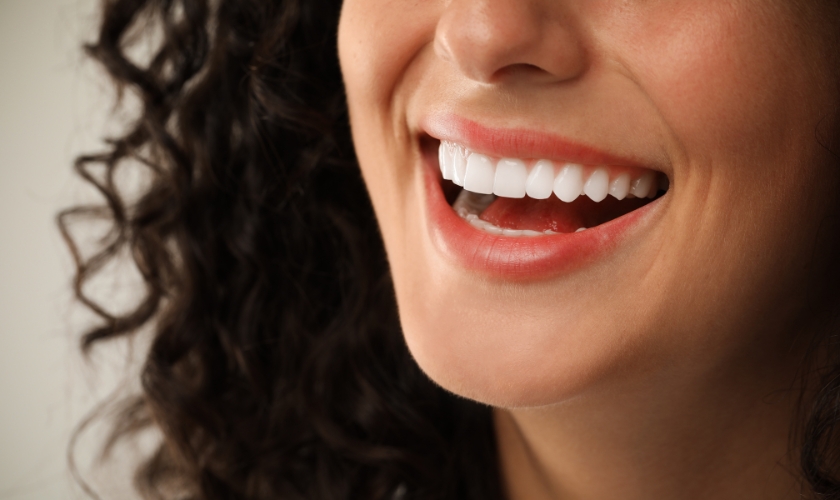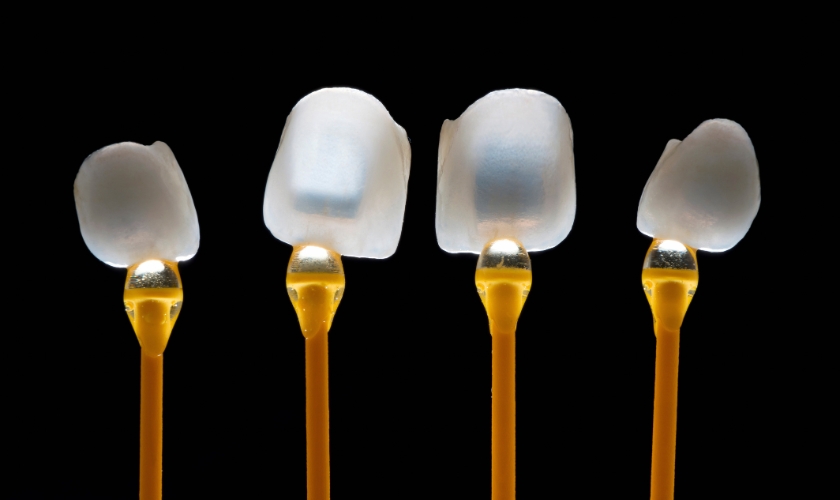Can You Eat Normally with Veneers? Foods to Avoid & Care Tips

Getting veneers breathes life into your smile, but adjusting to them takes time and intense care. While they are strong, some foods can cause damage, staining, or discomfort. Knowing what to eat and foods to avoid with veneers helps preserve their look and durability.
How Durable Are Veneers for Eating?
- Made from porcelain or composite resin, veneers resist everyday wear.
- Designed for normal eating habits, but not indestructible.
- Can chip or crack under excessive pressure from hard foods.
- Staining is possible with deeply pigmented foods and drinks.
- Proper care ensures longevity, often lasting 10-15 years.
Foods to Avoid with Veneers
Eating the wrong foods weakens veneers over time. Avoid these to protect your investment.
1. Hard and Crunchy Foods
Biting into tough foods can cause fractures or loosen veneers.
- Ice cubes
- Hard candy
- Popcorn kernels
- Raw carrots and apples (cut into small pieces instead)
- Nuts and seeds
2. Sticky and Chewy Foods
These can tug at veneers and create pressure on bonded teeth.
- Caramel and toffee
- Taffy and gum
- Chewy bread or tough meat
3. Staining Foods and Drinks
Porcelain resists stains better than natural teeth, but composite veneers are more prone to discoloration.
- Coffee and tea
- Red wine
- Dark berries (blueberries, blackberries)
- Soy sauce and curry
- Tomato-based sauces
4. Highly Acidic Foods
Acid weakens bonding materials and erodes enamel around veneers.
- Citrus fruits (lemons, limes, oranges)
- Vinegar-based dressings
- Soda and energy drinks
- Pickles and fermented foods
Foods Safe to Eat with Veneers
Maintaining your diet while protecting your veneers is simple with these options:
- Soft fruits – Bananas, mangoes, and seedless grapes
- Cooked vegetables – Steamed or roasted for easy chewing
- Lean proteins – Fish, eggs, and tender chicken
- Dairy products – Cheese and yogurt (low in acidity)
- Soft grains – Rice, pasta, and oatmeal
Tips for Eating Comfortably with Veneers
- Cut tough foods into small pieces to prevent biting pressure.
- Use your back teeth instead of biting with front teeth.
- Drink staining beverages through a straw to reduce exposure.
- Rinse your mouth after eating acidic or pigmented foods.
- Brush and floss daily to maintain veneer health.
Can You Chew Gum with Veneers?
Sugar-free gum is a better option, but excessive chewing causes wear. If unsure, ask your dentist for recommendations.
How Long Do Veneers Last?
With proper care, veneers last over a decade. Studies show porcelain veneers have a 91% success rate after 20 years. Avoiding damaging foods improves longevity.
Maintaining Your Veneers Long-Term
- Schedule regular dental visits for cleanings and checkups.
- Wear a nightguard if you grind your teeth.
- Avoid using your teeth as tools (opening packages or biting nails).
- Follow a low-acid, veneer-friendly diet for optimal oral health.
Enjoying food with veneers is possible with mindful eating habits. Avoiding harmful foods prevents chips, stains, and long-term damage. If you have concerns about your veneers, contact a dentist in Roseville for fool-proof guidance.




